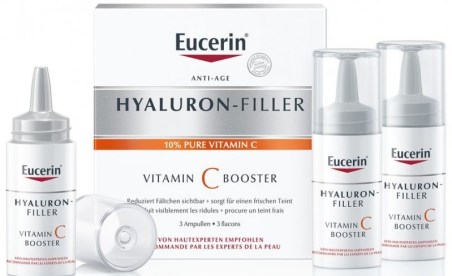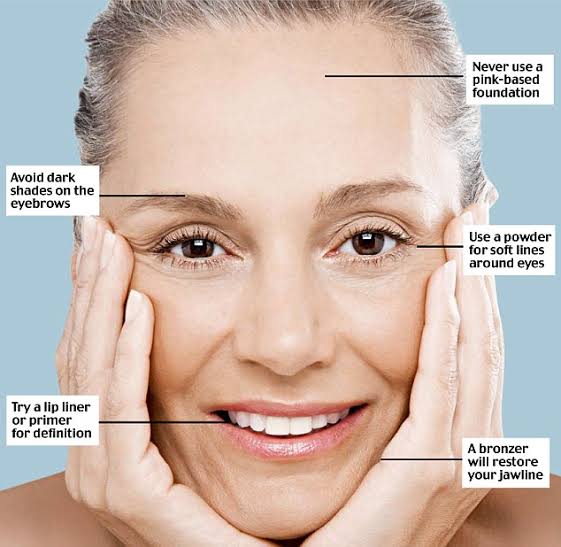The changes that occur in our bodies before, during, and after menopause play a role in how we take care of our skin and the products we use, but understanding hormones and their role really helps us respond to these. changes. For many years there was a mystery and maybe even a taboo in talking about how women age, but those times are over. Better to be warned and armed to see how we can protect, strengthen and heal our skin.
BUT FIRST, WHAT IS MENOPAUSE?
Menopause is defined as the time when a woman’s reproductive years come to an end. For some people, this is a very emotional time. Rather than seeing it as an end, it can also be seen as a beginning. Since hormones are involved in all of the changes that occur, emotions run high at times, but we can take advantage of this time and prepare for it with tools and guidance.
For most women, menopause begins at the age of 50-51, but some women can start as early as their mid to late 40s. Before this period, there is a period called “perimenopause” which is defined as a period of 8 to 10 years leading up to menopause, and the skin can become drier when hormones start to fluctuate. Studies show that around 85% of all women experience strong hormonal symptoms during this time. The period after menopause (1 year without periods) is called “post-menopause” and has its own problems.
WHAT CHANGES DO OUR SKIN GO THROUGH DURING PERIMENOPAUSE AND MENOPAUSE?
The skin is drier, wrinkles and even acne can affect women during menopause. For many women, their once successful skincare routine will change dramatically. Estrogen levels decrease while androgens (male sex hormones) remain constant. The decrease in estrogen affects all parts of the body, including our largest organ: the skin. The skin may become dry, sag, and wrinkles may appear. The decrease in estrogen has the effect of reducing the essential protein of the skin: collagen. Almost a third of our collagen stores are lost in the first five years of menopause.
Most people know that collagen is an important part of the strong structure of the skin. It is not for nothing that it is associated with age: abundant when we are young, it decreases with age. When estrogen levels decrease during menopause and perimenopause, skin changes include thinning of the skin and less blood flow to the top layer of the skin. Most women look at their skin and are happy to find that it is dull or dry, and they are not wrong. The skin becomes less hydrated, which leads to the formation of wrinkles. Collagen gives the skin its plump appearance and elasticity. As our collagen reserves decrease,the skin loses its elasticity and can no longer regenerate itself as it did in previous years.
Previously glowing skin can become dull in appearance as hormone levels decline. Menopause and itchy skin go hand in hand. Many women complain of abnormal skin sensations, such as numbness, tingling, or a feeling of itching.
As if that weren’t enough, some women who haven’t had a rash in years may suddenly experience acne. Pigmentation on the skin may darken in the form of spots or patches.

ARE THE SYMPTOMS OF MENOPAUSE GENETIC?
Some women may have a genetic predisposition to having thin skin. If you observe your mom, aunts, or other women in your family, you will find that they all seem to have their wrinkles in the same places. Some families may tend to have many vertical lines, above the mouth, and along the cheeks or neck. Other families have nothing like this, but can develop deep lines between the eyes, or deep creases from the nasal folds. How your own wrinkles develop comes from where your muscles are under the skin, and can lead to thinner, thicker, or oily skin before menopause.
However, there are some skin problems associated with menopause that can be resolved by the way you take care of your skin. Skin-specific health issues can play a role in the overall condition of your skin, but medications, especially corticosteroids, can contribute to skin quality if you’ve been using them for a while. Other habits, like smoking, can dramatically increase risk or disease, but also play a role in overdrying the skin and increasing wrinkles. Smoking also reduces collagen formation and, like alcohol, dehydrates the deeper layers of the skin, which contributes to symptoms of menopause.
SUN DAMAGE, SKIN DAMAGE AND MENOPAUSE
Estrogen also plays a role in the production of melanocytes, the cells that make the pigment, melanin, in our skin. At the time of menopause, the amount of melanocytes decreases due to degeneration. As the amount has been reduced, we make less melanin and our skin appears clearer. Melanin helps protect us from sun damage, so postmenopausal skin is more prone to UV damage. The irony is that the areas of our skin that we may have damaged when we were younger are now becoming the darker parts of our skin, standing out even more due to the lighter pigmentation overall. These “age spots” appear on the face, hands, neck, arms and chest,areas that typically receive the most sunlight in our lifetime. If you have fair skin, or if you’ve had sunburn in the past, you’re even more likely to develop numerous visible age spots.
THE BEST SKIN CARE FOR PERIMENOPAUSE AND MENOPAUSE
During menopause, your best defense is your best attack! The skin care ritual that you have had for the past 15 years may no longer work. Here are some tips to help you keep your skin supple during and after menopause:
Make sure your skin care includes hyaluronic acid. Hyaluronic acid is naturally present in young skin and decreases with age. It works between cells where it cushions and lubricates our connective tissues. In the facial skin, in particular, hyaluronic acid helps to maintain hydration in the cells by attracting more moisture. It helps to strengthen the protective barrier of the skin, calm inflammation and keep the skin vibrant, plump and elastic.

and soothing mask
Consume antioxidants, especially vitamin C, in your diet daily. Vitamin C is the essential vitamin to work with hyaluronic acid and helps to compensate for the drop in estrogen levels. It stimulates collagen production, can help reduce age spots, and brightens a dull complexion. It creates “pro-collagen,” the precursor to collagen, so eat your berries, kale, broccoli, kiwis, oranges and other citrus fruits. Incorporate vitamin C into your nighttime routine, either through a serum or in a night cream.

Include probiotics in your diet and in the products you use. Products like acidophilus or fermented foods like kimchi and sauerkraut can be a good addition to your diet because they counteract bad bacteria in the gut and help promote a healthy digestive system. Along with fluctuating hormones during menopause, probiotics can help keep skin healthier, especially if you suffer from acne breakouts. Topically, probiotics can help fight bacteria and “nourish” the skin.

Hydroméga Carrare is a food supplement based on natural sea buckthorn active ingredients. It promotes the action of Omega 3,6,7 and 9 fatty acids which enter into the composition of cell membranes.
Add peptides to your skin care regimen.
Peptides are small chains of amino acids that help strengthen the skin’s immunity and hormonal activity. Peptides are popular in preventing and reducing wrinkles, and help maintain collagen production. There are many types of peptides, each with different effects.

Hydrate, hydrate! In addition to drinking more water, your skin may need a richer face cream than the one you used before. Menopause makes your skin drier because the sebaceous glands are not as active. Use daily moisturizer on your face, neck, and hands, and start adding a nighttime serum or cream to your evening routine.

Protect your face and hands from sun damage. Use sunscreen daily and don’t forget to put it on your hands, as they are one of the first places sun damage shows up on the body. Hydrate every day! We cannot say it enough for you.

Exfoliate! You may need to add an extra day of exfoliation during menopause, in order to keep new skin cells on the top layer of your skin. By removing dead skin from the surface, the skin appears less dull and the pores remain clear, reducing acne and irritation.

Pschitt Magique Nouvelle Peau®, a real beauty treatment whose precious active ingredients cleanse, refine and regenerate your skin texture day after day.
LAST ADVICE …
Remember, just as we have all struggled with puberty, menopause is part of a normal woman’s life. This does not mean that you are ready to curl up and disappear… quite the contrary! Menopause comes at a time when we are ready to make real sense of the last third of our life. It puts what is important into perspective and reminds us to take care of ourselves and our loved ones.
When we faced puberty, our journey was very self-centered. Perhaps our biggest dilemma was seeing a pimple appear. Today we may be dealing with children, aging parents, the death of a loved one, work and many other complex issues. Taking care of your skin and taking into account the changes that occur in your skin during menopause is an act of taking charge of yourself. It is important to remember that with age comes wisdom. Take time for yourself, remind yourself that you are beautiful at this point in your life, and stay strong in your self-confidence.
You are dynamic, beautiful and healthy at any age


